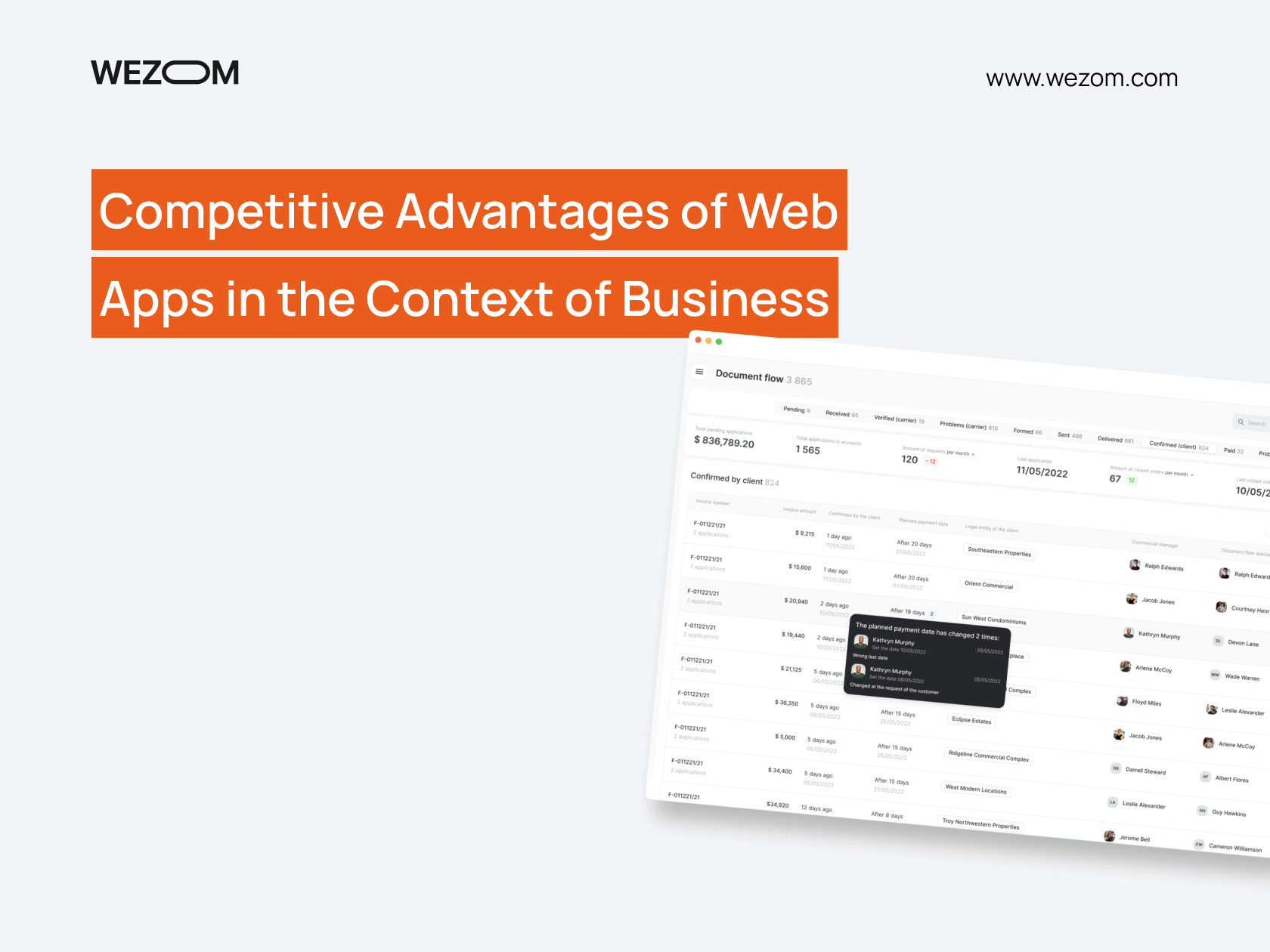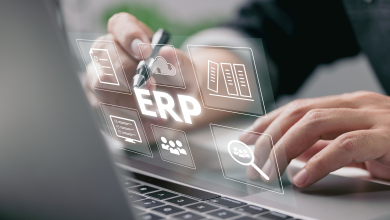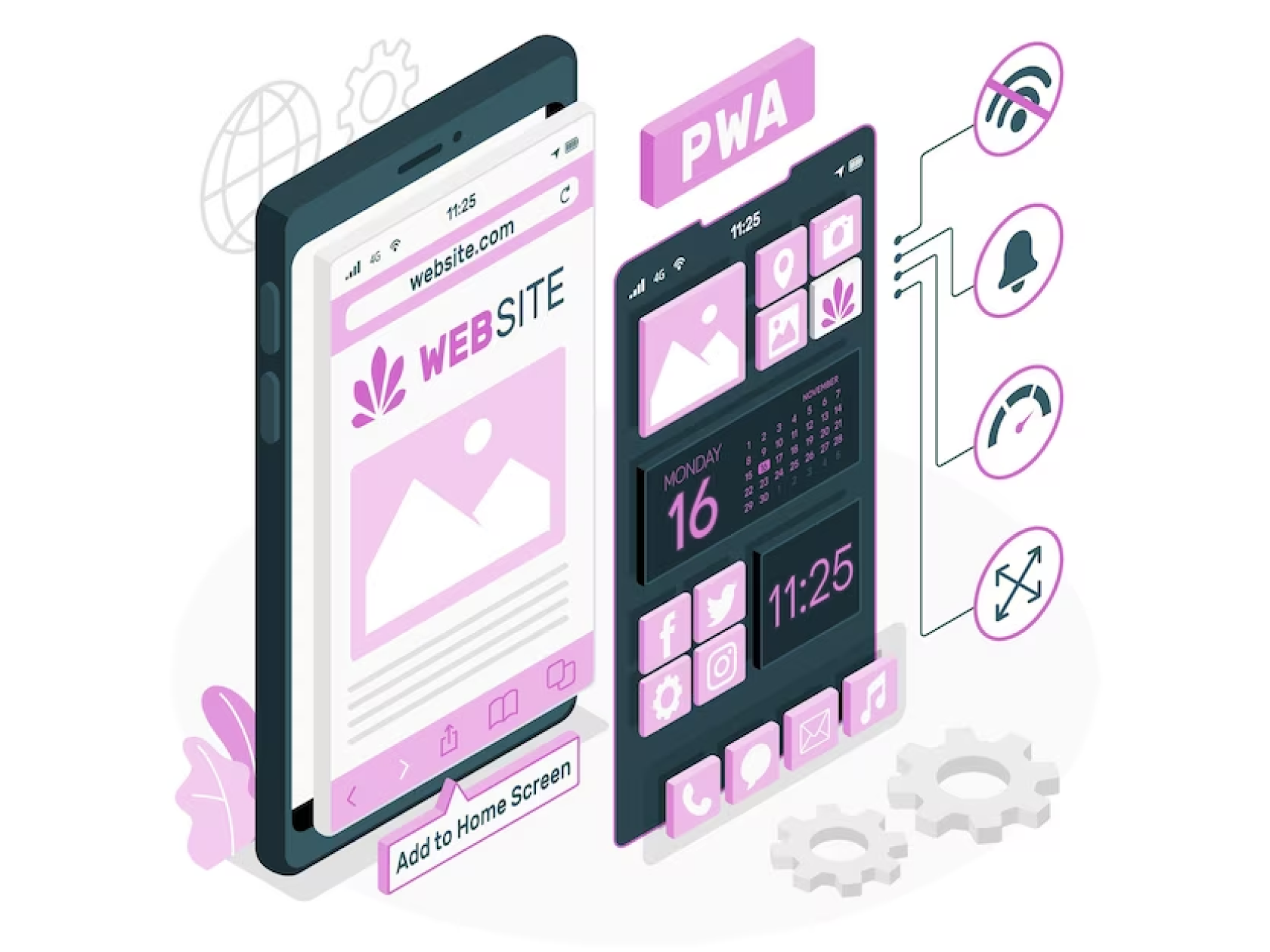When you have already decided that you need an ERP system to optimize the management and accounting of your business resources, you may have some doubts about its architecture. Indeed, it should meet not only the present but also the future business needs and goals of your company. In this article, we propose to discuss a special case of ERP architecture – web architecture.
Cloud-Based ERP vs. Web-Based ERP – What’s the Difference?
Along with the web architecture, which is a fairly popular format for Enterprise Resource Planning systems, there is also a cloud architecture, which, in theory, should embody the latest software trends.
In particular, while web-based ERP is only accessible through a web browser, cloud-based alternatives can often work offline, through a mobile app, etc.
In the context of security, for web applications, its level is limited to the hosting service used by a particular software vendor, and for cloud solutions, cloud providers can ensure much more advanced data protection tools on the server side. It would not be superfluous to pay attention to performance: in cloud ERP, it scales as needed, which cannot be said about browser counterparts that can “fall” under heavy user load.

At the same time, ERPs based on web technologies have one indisputable advantage over cloud ones: their implementation, ceteris paribus, is cheaper. Another significant advantage in favor of web ERPs is that the data they operate on will be wholly owned by the business, while cloud ERP data will be at the disposal of the cloud service provider.
What Is a Web-Based Application?
Now let's talk about what web applications are and how they work.
In a nutshell, these are software solutions that interact with end users through a web browser. They require the implementation of three tiers: the user side, the business logic, and the back end. With this approach, end users do not interact directly with databases on the server side, which significantly reduces the technical requirements for the devices through which they log in and, in particular, their performance.
Despite the development of cloud technologies, this type of software architecture does not diminish its relevance due to its cost-effectiveness and cross-platform (developers do not need to choose a technology stack that is tied to a specific deployment environment – it is enough just to ensure compatibility with popular web browsers to make the system working).
Thus, the choice of web architecture sometimes becomes almost the only viable option for small and medium businesses that are going to scale further.

Common Ideas for Web-Based Apps
Due to the wide availability of tools compatible with web technologies, the functionality of web applications can be almost unlimited: in particular, the following features can be implemented in your ERP:
- editing files of different formats;
- creation of documents;
- creating and editing quotes;
- sending messages and notifications;
- group chats;
- collaboration;
- project management;
- reporting and analytics;
- planning and scheduling tasks, etc.
How Does a Web Application Work?
Now let's take a look at the basic principles of work of web applications (this also applies to ERP systems based on web architecture):
- the user, being connected to the internet, makes a request to the web server through the ERP interface;
- then, the web server that is used by a specific web browser sends this request to the server hosting this ERP system;
- after that, the server of the ERP system processes the user request and generates the result that the user expects to receive;
- the result is transferred to the browser web server, which displays it to the end user on the display of a personal device.
Note that for the implementation of all these processes, no additional software, except for the presence of a web browser, is required – the end user just needs to have a link to the ERP system itself and a login and password for access. The only condition for use is an internet connection.
Competitive Advantages of Web Apps in the Context of Business
As you can see, the web architecture is quite simple and flexible in implementation, and its cost-effectiveness is beyond doubt in comparison with cloud solutions. However, the benefits of a web based system do not end there. Let's look at them in more detail.

Safe way to business store data
Since ERP systems based on web architecture store data on the server, there is no need to store it on the company's side. Thus, the latter relieve themselves of the need to purchase high-powered computing equipment specifically for maintaining the operation of ERP systems and regularly update its components responsible for the storage size (in particular, HDDs, SSDs, or NVMes).
Moreover, if some of the employees of the company that has implemented such an ERP work remotely, they can access it from their home PC or laptop, no matter how much computing power they have. All they need to get such access is a stable Internet connection.
No compatibility issues with user devices
As we noted earlier, ERPs based on web based technology work through a web browser on the user's side. This means that the limits on user device specifications are no more stringent than on their use of a web browser.
As for desktop software, such solutions often have more complex requirements. Moreover, to ensure maximum coverage of the target audience, companies developing native ERP systems have to create several independent products at once for each OS that will be in demand by potential users. This implies additional time and financial costs, which can increase the risk of non-return of investments.

Cost efficiency
The choice in favor of web technologies is mutually beneficial both for companies that develop such ERP systems and for businesses that are going to use them to optimize their resource management processes.
In particular, with regard to developers, web technologies, thanks to their overall availability, cover a wide range of possibilities and allow them to implement even the most complex and sophisticated functionality. If we talk about businesses, in view of the absence of additional costs for the acquisition of high-power equipment for hosting company data, the deployment of such software solutions can be considered quite affordable.
Simple updates
Finally, web-based ERP systems work through automatic updates with minimal involvement from end users. Such convenience will most likely be unattainable in the case of native software, which will require each employee of the company who uses it to download a new version of the system and manually install and re-configure it.
Progressive Web Apps (PWAs): The Future of Web Apps?
To combine the benefits of web technologies with the benefits of native software, when developing a custom ERP system, companies can pay special attention to the concept of progressive web applications (PWA). They do not take up much space on user devices and, at the same time, ensure availability for a part of functionality without an Internet connection. Also, such solutions are characterized by increased download speed and lower bounce rates.

All of these benefits are either generally unattainable with other web development approaches, or achieving them is difficult and resource-intensive. Thus, many companies developing ERP systems decide to create PWAs instead of traditional web based solutions.
Conclusion
The choice of web technologies for the development of an ERP system is cost-effective and does not limit the company's ability to implement advanced functionality. The only obstacle to their overall effectiveness may be scaling, which is better achieved when implementing cloud solutions. Otherwise, web architecture will be an excellent choice.
If you are looking for a development team that would select the optimal technological stack for your custom ERP system and would take over its implementation, feel free to contact us. We have vast experience in the development of turn-key solutions for businesses and are sure that we can bring the maximum benefit to your company.
What are the 3 common types of ERP?
Modular ERP lets businesses choose specific modules, like finance, tailored to their needs. Integrated ERP connects all processes in one system for seamless data flow. Cloud-based ERP, hosted online, offers scalability and remote access with a subscription model, catering to varied business needs and budgets.
What is an ERP system examples?
An ERP system consolidates business processes into one software solution. Systems like SAP, Oracle ERP Cloud, and Microsoft Dynamics integrate functions like finance, HR, and supply chain. This centralization streamlines operations, offers real-time insights, and enhances decision-making.
